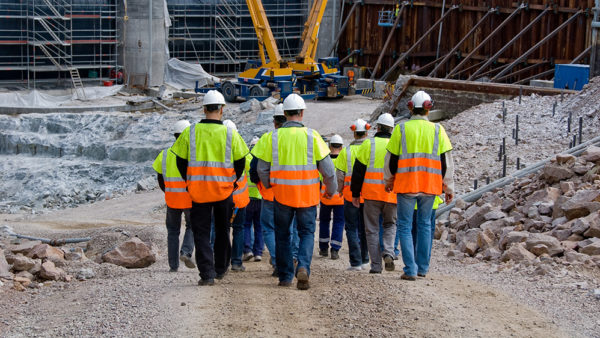
Keith Clarke
New roles for contractors, pressure on the supply chain and taxation are on the horizon…
As I write, European Union officials have started talking about Europe-wide carbon emission cuts of up to 95% by 2050, with a shorter term 30% reduction target by 2020. While this is only a negotiating position ahead of the COP15 global climate change talks in Copenhagen next month, the message this sends is a powerful one. For those of us involved in the construction sector, it presents both a unique challenge and a huge opportunity.
We should draw comfort from the fact that whatever global deal is reached, the UK is already positioning itself to take advantage. From a legislative point of view we are already leading with the world’s first Climate Change Act, demanding carbon cuts of 80% by 2050.
But the truth is, once we get beyond 2020 the UK’s interim carbon budget targets will already be driving huge change.
So while, at present, it could be argued that countries such as Switzerland and Germany are leading Europe’s construction sector in carbon thinking, the rate of change that the UK’s professionals are being forced to go through means we are catching up fast.
It is difficult to imagine how we will be working in even five years. But what is happening in Switzerland gives us a clue. Swiss contractors are now taking an increasingly high-profile project management role as on some projects they are being asked to provide warranties on buildings to guarantee their energy efficiency. Contractors are therefore seeking to control processes even more tightly, leading to designs being fixed at an earlier stage and an increasing focus on building physics.
This raises questions about how the whole design and construction process may change. In future, designers will still be able to create beautiful buildings, but the construction process may be carried out differently. On a high-rise tower, for instance, the only component that may be conventionally constructed would be the structural armature. All the accommodation and service modules would be made off site and simply lifted into place and fixed. The design and build integrity would be of the highest standards and the building would outperform anything we have today.
As we become more skilled at building super-efficient, perhaps even carbon zero, projects, the focus will shift to embedded carbon and this will bring pressure on the supply chain – a top-down demand for greater transparency and accountability.
The main cry that goes up is “how much will this cost, and will clients pay for it?”
However, that does not heed what is already happening. President Sarkozy of France announced in September this year that he would be introducing a carbon tax covering the use of oil, gas and coal starting in 2010. That tax would initially be set at €17 a tonne and cover around 70% of the country’s carbon emitters. After the climate change talks in Copenhagen, the UK is also expected to look at some form of carbon tax.
While we do not need to consider how this may be achieved, we do need to think about the impact of such a move.
Carbon will become an increasingly significant part of the project cost and clients will naturally demand more accurate information on their exposure to it. This is not something that stops once the build is completed either, as there will be an on-going cost implication of having a less efficient building. This means construction professionals will have to make judgements on whether to “spend” more carbon up front on a build to improve its efficiency going forward. This is thinking we, as a sector, are not doing to any meaningful extent at the moment.
There will be a skills element to all of this too because knowledge must expand.
Already the UK’s Green Building Council is talking about setting up industry-wide courses to help address skills gaps.
The greatest challenge is not keeping pace with current thinking, it is predicting what is coming next. For Atkins and every other company in the sector, cutting carbon emissions is not a moral decision, but a business one.
Keith Clarke is chief executive of Atkins and chairman of the Construction Industry Council











Comments are closed.